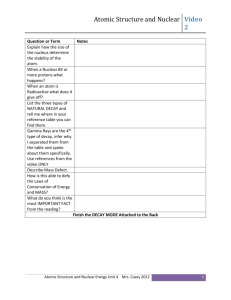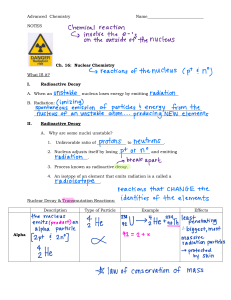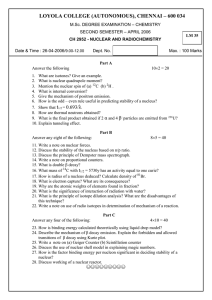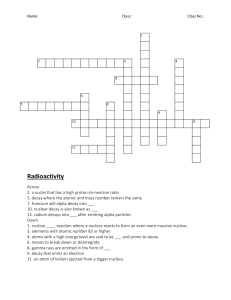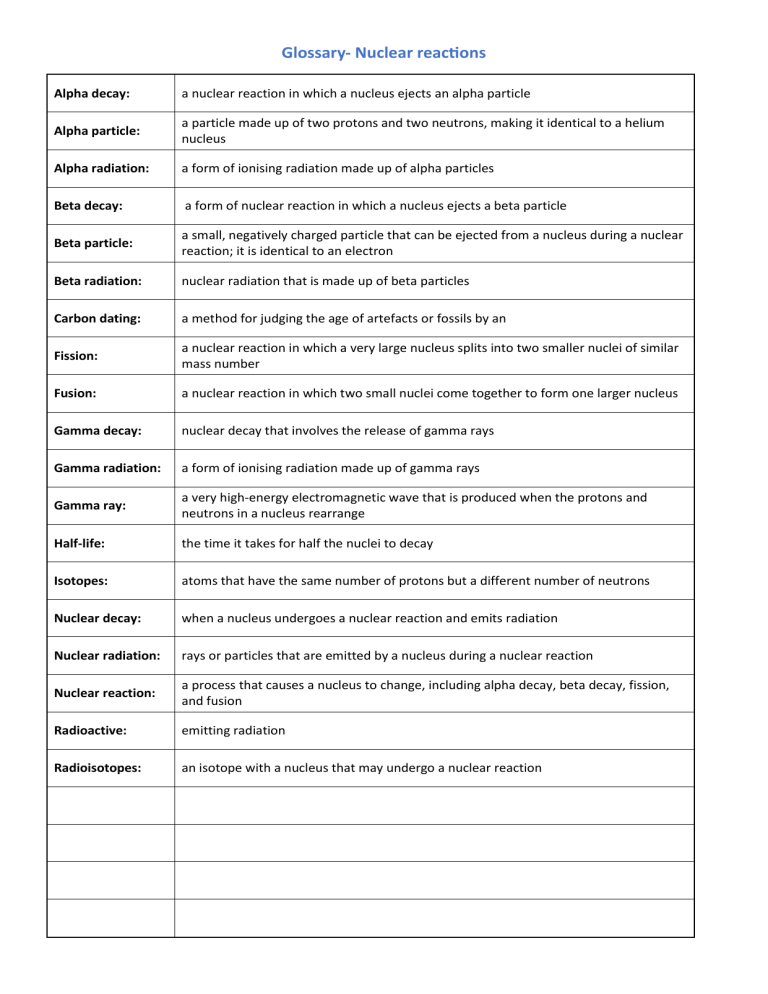
Glossary- Nuclear reactions Alpha decay: a nuclear reaction in which a nucleus ejects an alpha particle Alpha particle: a particle made up of two protons and two neutrons, making it identical to a helium nucleus Alpha radiation: a form of ionising radiation made up of alpha particles Beta decay: a form of nuclear reaction in which a nucleus ejects a beta particle Beta particle: a small, negatively charged particle that can be ejected from a nucleus during a nuclear reaction; it is identical to an electron Beta radiation: nuclear radiation that is made up of beta particles Carbon dating: a method for judging the age of artefacts or fossils by an Fission: a nuclear reaction in which a very large nucleus splits into two smaller nuclei of similar mass number Fusion: a nuclear reaction in which two small nuclei come together to form one larger nucleus Gamma decay: nuclear decay that involves the release of gamma rays Gamma radiation: a form of ionising radiation made up of gamma rays Gamma ray: a very high-energy electromagnetic wave that is produced when the protons and neutrons in a nucleus rearrange Half-life: the time it takes for half the nuclei to decay Isotopes: atoms that have the same number of protons but a different number of neutrons Nuclear decay: when a nucleus undergoes a nuclear reaction and emits radiation Nuclear radiation: rays or particles that are emitted by a nucleus during a nuclear reaction Nuclear reaction: a process that causes a nucleus to change, including alpha decay, beta decay, fission, and fusion Radioactive: emitting radiation Radioisotopes: an isotope with a nucleus that may undergo a nuclear reaction
